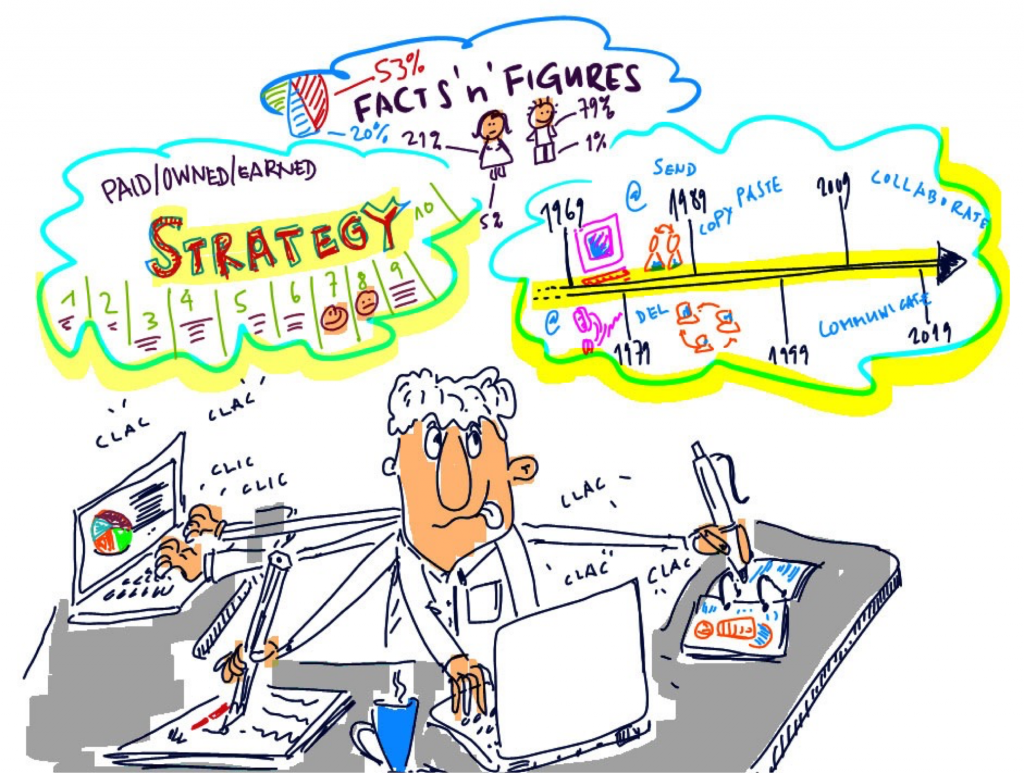Until a couple of years ago, every time someone would ask me how I was doing, I would always give the same answer: I am so busy. Extremely busy. Crazy busy.
I wore my exhaustion like a trophy, as a sign of my strength and a mark of my character. (At one point I ran a Mother’s Day half-marathon with a fever, not wanting to disappoint my family who’d driven 5 hours to watch me.) The busier I was, the more important I felt. I was committed to pressing on, despite clear signs that I was headed for a fall.
I had been done in by our culture’s big lie, which is: Busyness is a marker of importance, of character, of economic security.
And this means that the reverse must also be true: If we aren’t busy, we lack importance. We’re insignificant. We’re under-achieving. We’re weak. Un-busy people are lazy, not to be liked or trusted.
Let’s think for a minute about what it really means when we say that we are busy.
If I tell you I’m busy, it isn’t because I’ve just spent an hour hiking, or playing with my dog. It isn’t because I’ve spent the whole afternoon working on an engaging project, and lost all sense of time. I won’t lead with “I’m so busy” if I’m feeling passionate about something I’m writing, or if I feel super creative and productive and efficient and at ease.
I will only tell you I’m busy if I’m harried. A little on edge. Doing a bunch of stuff that doesn’t really capture my interest or imagination. If you tell me that you are busy, your unconscious is hinting to me that you are a little unhappy or overtired, that you are willing to sacrifice your well-being for your career or your boss or your team at work, or for the long-term success of your children, or doing what you (or other people) think you “should” be doing.
Busy-ness does not make us happy. It also does not make us successful.
The truth is that busyness is a mark of what neuroscientists call “cognitive overload.” This state of feeling overwhelmed impairs our ability to think creatively, to plan, organize, innovate, solve problems, make decisions, resist temptations, learn new things easily, speak fluently, remember important social information (like the name of our boss’s daughter, or our daughter’s boss), and control our emotions. In other words, it impairs basically everything we need to do in a given day.
Cognitive overload–busyness–is a not a sign that we are important or productive. It is a sign that we aren’t fulfilling our potential.
It’s also a sign that we aren’t as physically healthy as we could be. Scott Dannemiller, in his post “Busy is a Sickness,” quotes Dr. Suzanne Koven, an internist at the Massachusetts General Hospital:
In the past few years, I’ve observed an epidemic of sorts: patient after patient suffering from the same condition. The symptoms of this condition include fatigue, irritability, insomnia, anxiety, headaches, heartburn, bowel disturbances, back pain, and weight gain. There are no blood tests or X-rays diagnostic of this condition, and yet it’s easy to recognize. The condition is excessive busyness.”
Busyness causes health problems. And yet the type of busyness we are talking about is entirely within our control (as opposed to the busyness of someone living in poverty, working multiple minimum-wage jobs just to keep the lights on and the children fed). The busyness of the affluent and middle-class is an illness we are choosing, “like voluntarily licking the door handle of a preschool bathroom,” writes Dannemiller.
Let’s stop choosing busyness.
Take Action: Here are 5 tactics to help dial back the overwhelm:
- Stare into Space
- Find the “Minimum Effective Dose”
- Change Your Mantra
- Single Task
- Clear Mental Clutter by Making a Plan
Pick the one that feels easiest for you, and then make it a routine! (For support getting into a new habit, enroll in this free online class.)
Join the Discussion: Which of these tactics works best for you? What else helps you feel less busy? Do you agree that busyness is an illness we are choosing?


Not only are we doing it to ourselves, we’re doing it to our children… They are also busy, even more so than we are! And I think as a result, they are experiencing cognitive overload as well… “This state of feeling overwhelmed impairs our ability to think creatively, to plan, organize, innovate, solve problems, make decisions, resist temptations, learn new things easily, speak fluently, remember important social information (like the name of our boss’s daughter, or our daughter’s boss), and control our emotions. In other words, it impairs basically everything we need to do in a given day.”
Agreed!
Not everyone is busy by choice. I wish I could slow down, but between work, kids, and keeping the house running I have absolutely no time.
I agree, but most of us have more choice than we realize. The first choice, really, is not to see busyness as a sign of success or significance.